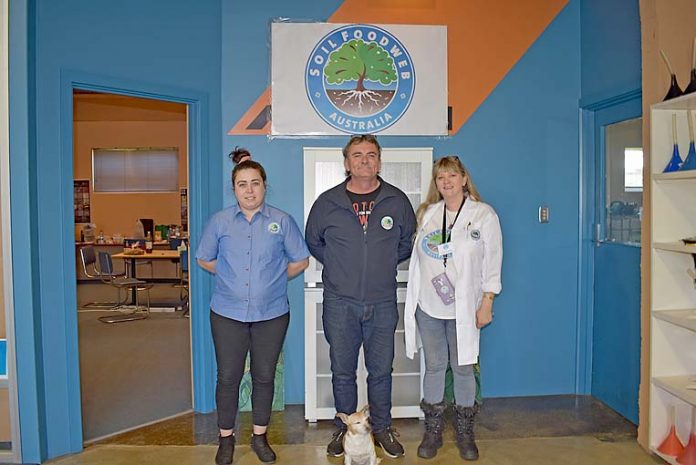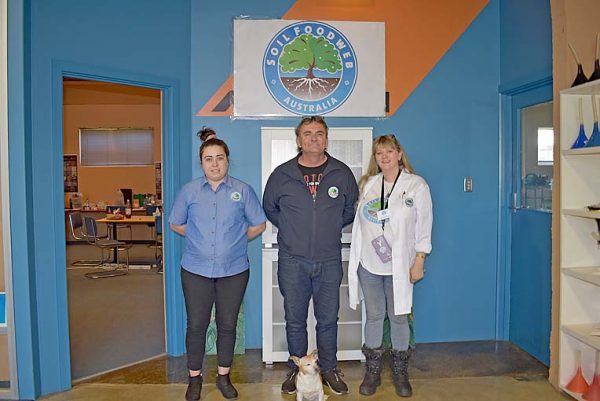

AN international soil testing and consultancy firm has entrenched itself in Millicent, bringing world-class knowledge to the district.
The Millicent-based Soil Foodweb Institute has gained a national reputation for its excellence in strengthening and nourishing soils through biological means rather than chemical.
Director Chris Ellery has a background in horticulture and presented seminars across the world on how natural ecosystems can enhance soil health.
He recently moved back to Millicent to be closer to family and still has national clients, with recent seminars attracting farmers, horticulturalists and viticulturists from South Australia and interstate.
“I work with many people – from people creating compost to a client who has $1.2m worth of acreage,” Mr Ellery said.
The institute studies samples of soil, with Mr Ellery and his team then making recommendations on how to get the best result from the soil.
“We work in regenerative agriculture, where the health of the soil is paramount to have a flow- on effect of plant, animal and human health,” Mr Ellery said.
“We do this by looking at the bio-composite of the soil – its fungi, bacteria, amino acids, probiotics and protozoa.
“When we have the soil functioning in a healthy way we see things like a symbiosis between roots and fungi.
“We empower farmers to look at their soil and see it as one of the most dynamic organisms on the planet.”
Through making soils stronger biologically Mr Ellery has seen farmers increase their return by up to 50pc.
Mr Ellery has also worked with farmers and land managers to earn carbon credits through the photographsynthesis of carbon dioxide.
Other projects Soil Foodweb Institute and Mr Ellery specialise in are waste management via composting and recycling and using grasses to fight weeds in crops.
“If you look around this region we have many crops such as canola and beans for example,” he said.
“It’s very mono-cultural. But by planting 5-10pc of grasses it diminishes the weed growth.”
The institute’s Millicent lab regularly receives soil samples from across the country for testing.







